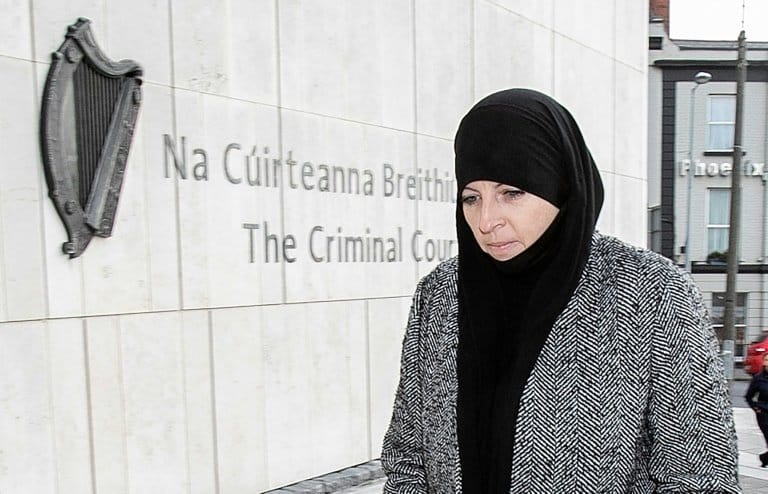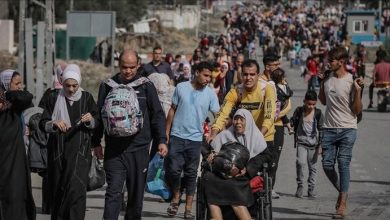Irish court finds ex-soldier Lisa Smith guilty of joining IS

Three judges at the Special Criminal Court in Dublin on Monday found former soldier Lisa Smith guilty of joining the so-called Islamic State group in Syria.
Smith, 40, wept in the dock as judge Tony Hunt read the panel’s decision, which was delivered after a nine-week trial.
The Muslim convert, who wore a hijab to court, pleaded not guilty to membership of an unlawful terrorist group between October 28, 2015 and December 1, 2019.
She was acquitted of a separate charge of financing terrorism by sending 800 euros ($900) to aid medical treatment for a Syrian man in Turkey.
Hunt said there was reasonable doubt that she intended the money to be used for humanitarian purposes rather than to fund terrorism.
He granted her bail until a sentencing hearing on July 11.
During the trial, which began in January, prosecutors detailed how Smith, who was a member of the Irish Defence Forces from 2001 to 2011, travelled to IS controlled territory in 2015 after converting to Islam.
In 2012, she went on pilgrimage to Mecca, and expressed a desire on an Islamic Facebook page to live under Sharia law and to die a martyr.
The court was told that she bought a one-way ticket from Dublin to Turkey, crossing the border into Syria and living in Raqqa, the capital of the Islamic State’s self-styled caliphate.
At the time, the hardline Islamists ruled over vast swathes of Syria and Iraq, attracting thousands of foreign fighters to their cause before the group’s territorial defeat in the region.
After failing to convince her husband to join her, Smith divorced him in 2016 and married a UK national involved in the group’s armed patrols.
As IS lost ground to a US-led coalition on the battlefield and towns and cities under its sway fell, Smith was forced to flee Raqqa and then Baghouz, their last remaining stronghold, before returning to Ireland.
She was arrested on arrival at Dublin airport on December 1, 2019 with her young daughter.
Defence lawyers argued that Smith’s presence in IS territory did not make her a de facto member of the extremist Sunni group.
They have said it could only be argued “at a stretch” that she provided some sort of assistance to the group because she had kept a home for her husband.
The three judges sat without a jury at the Special Criminal Court, which adjudicates on cases involving terrorism and organised crime offences.





